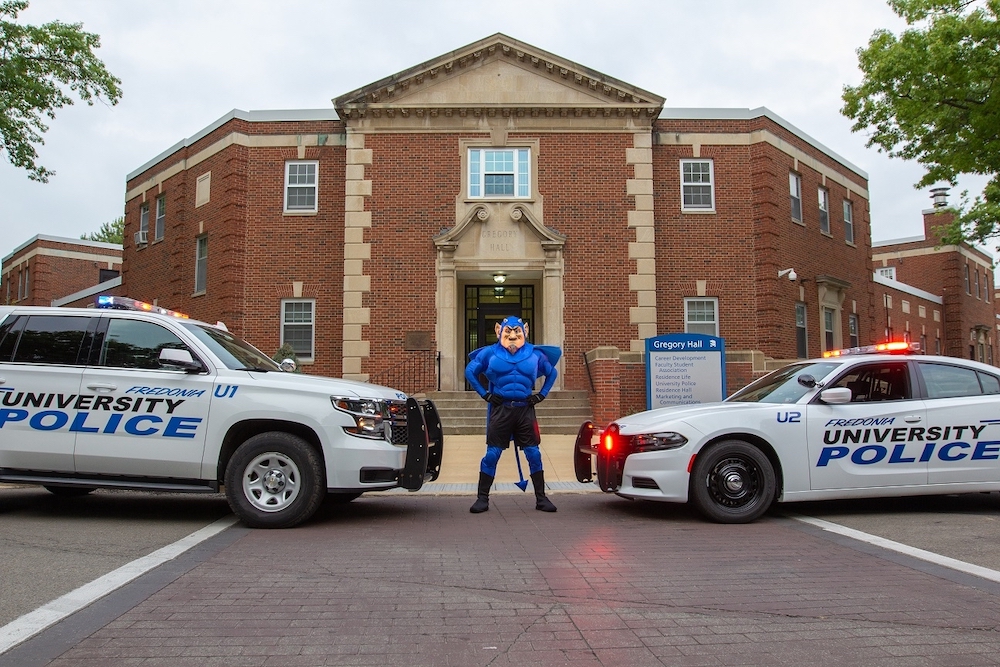ALISA OPPENHEIMER
News Editor

In an effort to create dialogue and build relationships between students and University Police, the Student Association and U.P. have been working together to create the new Student Advisory Group on Campus Safety.
You may have seen an email on behalf of S.A. in recent weeks stating: “I’m reaching out with an amazing opportunity for you.”
This opportunity consists of expressing whatever comments, concerns, feelings or thoughts you have regarding U.P. directly to them.
With the current climate of our society surrounding police and police brutality, a committee like this is an important first step in the right direction, according to S.A. President Israel Ortiz.
“Our political climate in this past year has risen beyond tense, with many losing their lives and police disproportionately targeting people of color. I knew that coming into my first semester as president, this is something I was going to have to address,” he said.
For Ortiz, it’s vital that our campus police listen and take advice from their students, especially now.
“I think it can be scary to be a police officer who has to step in front of a board of students and hear the hard truth, but I believe that they understand the need.”
Lucky for him, University Police Chief Brent Isaacson also saw the need for this, and together, they brought their ideas to life.
“I do think there are a lot of benefits by being more proactive in assembling a group of students who are interested in this effort,” said Isaacson.
“I certainly recognize that in a lot of areas around the country there’s not a good relationship between police departments and their communities,” he continued.
Chief Isaacson explained that while University Police differ from city police departments, they can still work to be better on our campus.
“We have a different constituency, we have a different community, we have young intelligent creative people who come to us from all over the world with all different kinds of backgrounds and lived experiences, and the more that we can communicate and have good, positive conversations with our community, the better off we’re all going to be,” he said.
The new advisory group will be responsible for things such as reviewing issues involved in campus safety and crime on campus, recommending ways to increase student input into policing efforts on campus, developing activities to increase the frequency of positive interactions between students and police officers, identifying areas where community policing efforts are falling short of expectations or areas where there is opportunity for improvement, partnering with U.P. and resolving emerging issues related to campus-policing.
What makes the group unique is that most committees or boards usually consist of about 20 faculty with a few students.
The Student Advisory on Campus Safety will consist of the exact opposite; about 20 or so students with three to five faculty members.
“We aim to provide an avenue for students to use their voice above and beyond what they have been able to before,” said Ortiz.
Ortiz admits that at first, the advisory group was not gaining much attention or bringing many students in, but what changed this was the call for students of color.
“We were stuck at around 20 students for a few weeks which is great, but I wanted more involvement,” said Ortiz.
“With everything happening in the world right now, I wanted more input from students of color. I reached out to every single student of color on campus, and since then the group enrollment has more than doubled,” he said.
One thing Ortiz makes clear is his ultimate goal for this group.
“My goal is to… make campus a safer, more welcoming environment for the student body, but also to bring comfort and security to students of color coming from predominantly Black, Hispanic and Latino communities. I wish the same for international students who are afraid of police figures or have had bad experiences with them,” he said.
“If we can all sit together and share our experiences that left us perturbed and uneasy; and one attitude changes, one mind is opened, one person is more empathetic — I would consider that a breakthrough.”
If any students are still interested in learning more about the Student Advisory Group on Campus Safety, they should reach out to either S.A. President Israel Ortiz, or Police Chief Brent Isacson.
